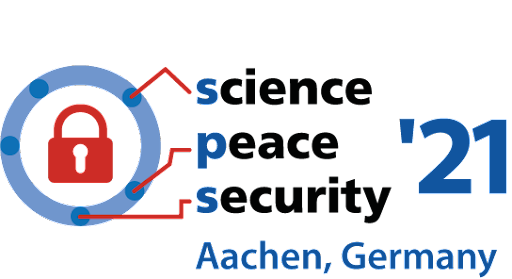
Carlos Nupia at Science, Peace, Security 21’
CAPAZ Administrative Director, Carlos Nupia, will present a poster titled “Building transparency and confidence measures (TCBMs) in post-conflict times in Colombia: Military technologies at the crossroads of civil and war applications” on September 9 at the “Science, Peace, Security 21” conference. The event will be held online and is organized by Technischen Universität Darmstadt and Rheinisch-Westfälische Technische Hochschule Aachen.
The conference will bring together researchers from different areas of knowledge to present their papers on the impact of new technologies in the field of international security. They will discuss topics such as the effects of technological developments in military devices or the construction of secure environments based on scientific contributions.
Dr. Nupia’s work raises a discussion on the use of science and new technologies in the Colombian post-conflict context. He explains that these are ambiguous times, in which we could either make use of technological advances for the country’s socio-economic development (humanitarian demining, manufacture of artificial respirators, etc.), or we could continue to develop technologies that support arms production. Both scenarios have a direct influence on the peace-building process in the regions, so it is worth asking about the role that military technologies are currently playing in post-conflict scenarios.
The analysis states that the transparency and confidence-building measures (TMBC) defined in the peace agreement signed between the Colombian government and the former FARC-EP guerrillas are specifically designed to monitor and control the ceasefire and laying down of arms, but are not sufficient to guarantee the consolidation of a stable and lasting peace. We must, therefore, analyze the type of rationality that should be used for these transparency measures to fulfill their objective and thus achieve this type of peace.
In his poster, Nupia also contributes to the debate with some interesting points: He analyzes the high demand for weapons that has existed in Colombia for several years, even in light of the signing of the peace agreement. This is important for the development and institutionalization of new transparency and trust measures that work and are useful. Finally, the poster raises a series of debates such as the ethical implications of the use of weapons for peace stabilization, or the role of academia in consolidating research in the defense field in articulation with the military sector.



